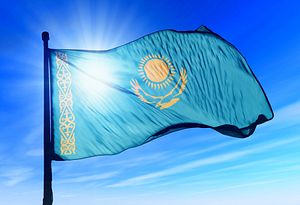A few months ago, the Kazakhstani government took its campaign against non-state media to the U.S. court system. Representatives from Astana attempted to use U.S. courts to eliminate Respublika, one of the country’s few remaining independent outlets, by lumping the publication in within hackers who had swiped nearly 70 gigabytes worth of information from government officials. Citing the Computer Fraud and Abuse Act (CFAA), a U.S. federal statute, Kazakhstan sought, as the Electronic Frontier Foundation noted, “to pry personal information about Respublika employees and volunteers” and to use the American court system to shutter the outlet – all because Respublika reported on the hack.
But the court’s decision, first flagged by the Washington Post, has now come, and landed squarely on the side of Respublika. The court’s rationale in siding with the news outlet stemmed largely from the fact that Respublika was simply doing what news outlets do; that is, report. The court noted that an earlier injunction, enjoining the “John Doe” defendants from “using, disclosing or otherwise disseminating” the material obtained in the hack “does not apply to Respublika.” After all, should the Kazakhstan government’s logic be extended, any and all publications reporting on the hacks would be, ipso facto, likewise subject to the injunction. As the court noted:
The fact that Respublika may have used or posted certain of the Stolen Materials on its website, is not, without more, sufficient to subject it to the Injunction. The First Amendment grants persons a near absolute right to publish truthful information about matters of public interest that they lawfully acquire.
The case brought against Respublika becomes that much more farcical when, as the ruling noted, no evidence exists that Respublika had anything to do with the hack, and was not doing anything more than simple reporting. “Kazakhstan, as it itself concedes, does not have sufficient evidence to indicate that Respublika was in any way responsible for the alleged hacking or acted in concert with the hackers,” the ruling read. To be fair to Astana, the plaintiffs were likely more familiar with journalistic practice in Kazakhstan, which has seen its independent coverage decimated over the past few years.
Specious understanding of journalistic practice aside, this isn’t the first attempt on the Kazakhstan government’s behalf to use American courts to go after opponents, journalistic or otherwise. A lawsuit against Kazakhstan’s remaining political foes is currently rattling around U.S. federal court. But for now, Respublika can gain some breathing space – and Kazakhstan’s beleaguered independent media can survive that much longer.

































